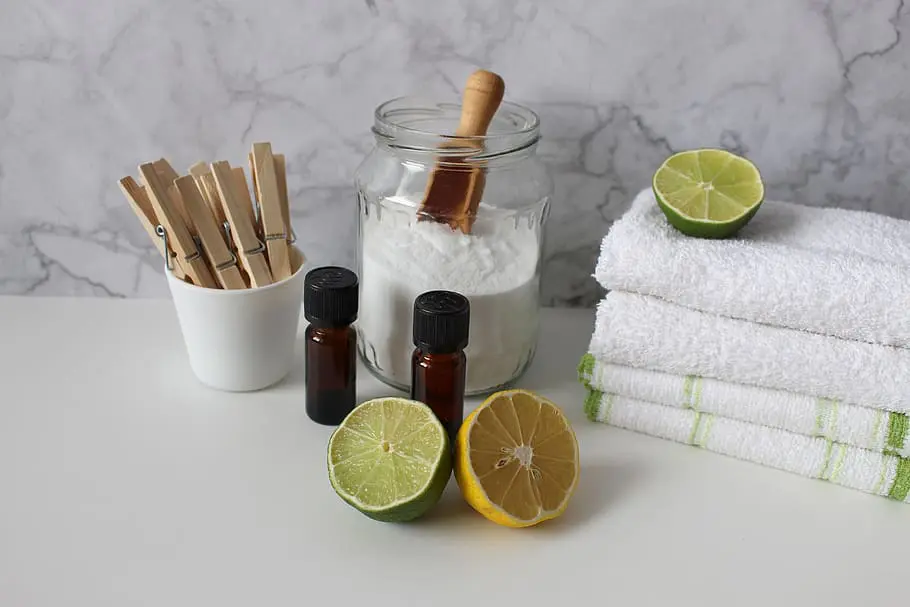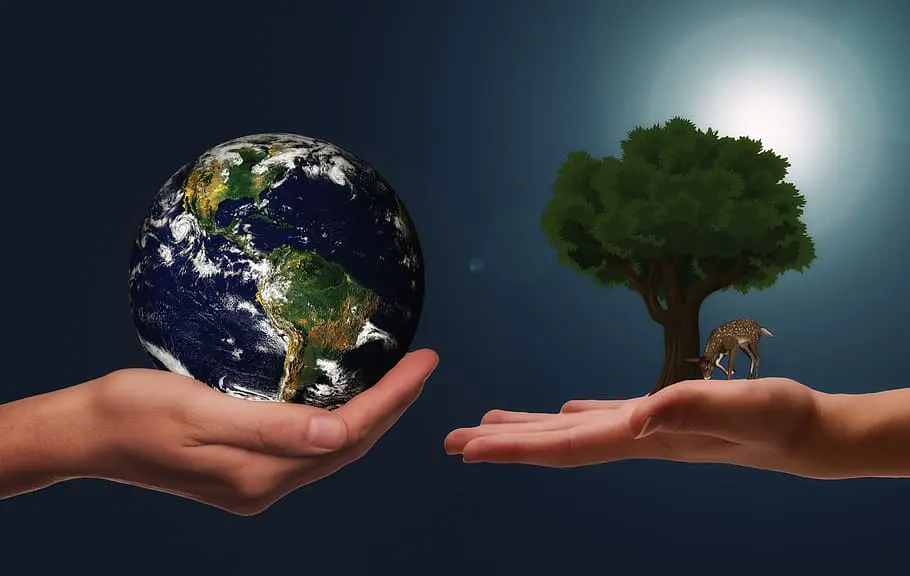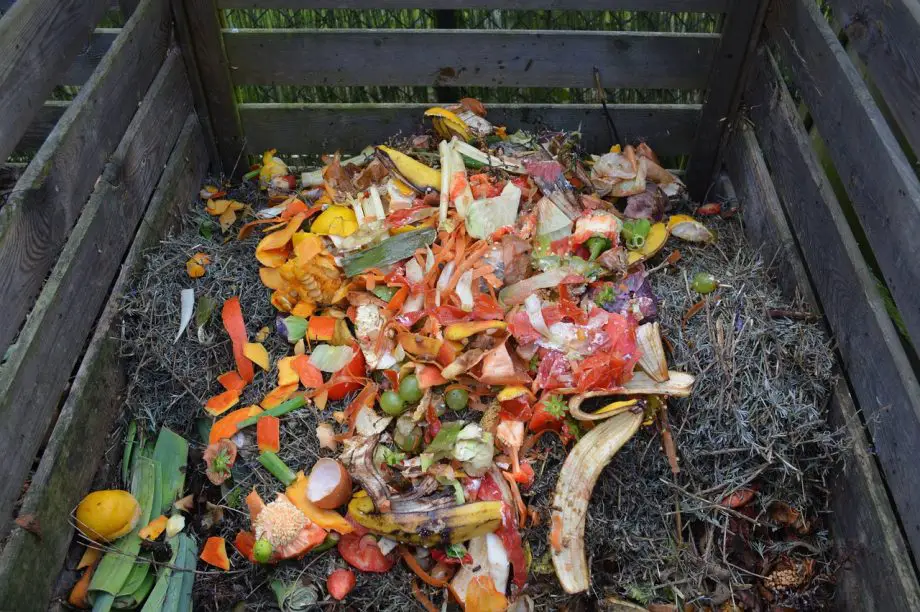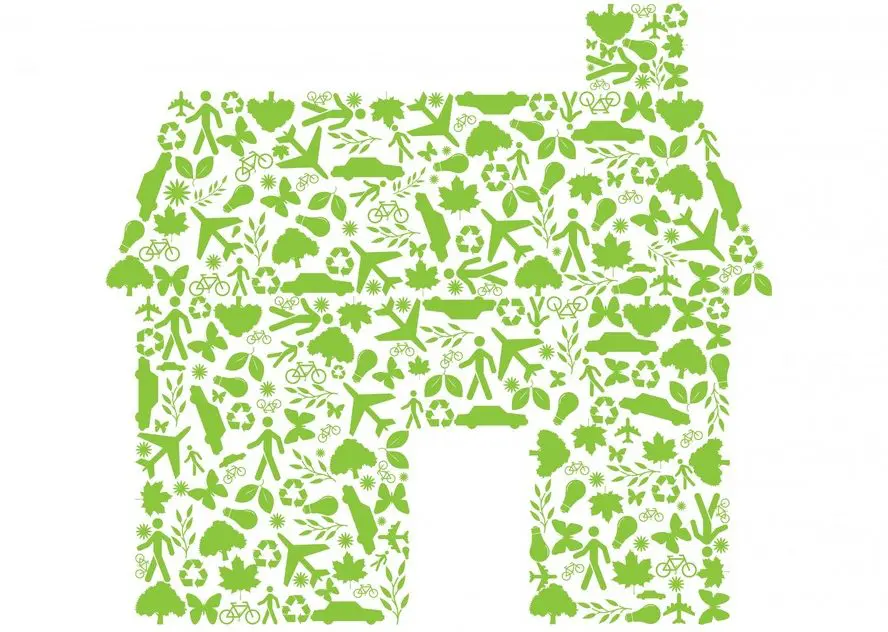
Discover easy steps on how to start a zero waste lifestyle. Embrace sustainable living with our practical tips and make a positive impact today!
Ever wondered how to start a zero-waste lifestyle? It’s not as daunting as it sounds!
In fact, it’s a journey filled with simple, rewarding steps toward a more sustainable way of living.
This lifestyle doesn’t just benefit the environment, but it can also bring a sense of fulfillment and purpose to your everyday life.
Let’s dive in and explore how you can embark on this eco-friendly adventure!
How To Start A Zero-Waste Lifestyle
Are you ready to take a leap into the world of sustainability? If you’ve been pondering about how to start a zero-waste lifestyle, you’ve landed in the right place!
In this comprehensive guide, we’ll demystify the concept of zero-waste living, explore the 5 R’s of the waste hierarchy, and provide practical steps to kickstart your journey.
We’ll also delve into common challenges you might face and offer solutions, discuss the impact of this lifestyle, and answer some frequently asked questions.
So, buckle up and join the Zero-waste movement and let’s set off on this exciting journey towards a greener and cleaner lifestyle!
Definition of a Zero Waste Lifestyle
The term zero waste lifestyle might sound a bit intimidating at first, right? But, let’s break it down.
It’s a way of living that aims to significantly reduce the amount of waste we produce, with the ultimate goal of sending nothing to landfills, incinerators, or the ocean.
It’s about rethinking our consumption patterns and making conscious choices to minimize waste.
Now, it’s important to remember that ‘zero’ in zero waste doesn’t mean you’ll never produce a single piece of trash.
It’s more about striving towards that goal and making mindful decisions that reduce waste.
Importance and Benefits of a Zero Waste Lifestyle
Now, why should we consider adopting a zero-waste lifestyle? Well, the benefits are manifold!
Firstly, it’s a powerful way to reduce our environmental impact. By minimizing waste, we can help conserve resources, reduce pollution, and combat climate change.
Secondly, it can be incredibly empowering on a personal level. It encourages us to live more intentionally, making choices that align with our values.
Thirdly, it can even be beneficial for our wallets! By focusing on reusing and reducing, we often find that we’re saving money in the long run.
Lastly, it can lead to a healthier lifestyle. By choosing package-free foods and natural products, we often end up reducing our exposure to harmful chemicals.
So, as you can see, adopting a zero-waste lifestyle can be a win-win situation for both the planet and us!
Understanding the Zero Waste Hierarchy
Before we dive into the practical steps of adopting a zero-waste lifestyle, let’s take a moment to understand the guiding principles behind it.
These principles, often referred to as the ‘Zero Waste Hierarchy’, serve as our roadmap to waste reduction.
They’re like the compass guiding us on our journey toward a more sustainable lifestyle.
So, let’s unravel this hierarchy and see how it can help us navigate our path to zero-waste living!
The 5 R’s: Refuse, Reduce, Reuse, Recycle, Rot
• Refuse: This is the first and perhaps the most proactive step in the hierarchy.
It’s all about saying ‘no’ to things we don’t need, especially single-use items like plastic bags, straws, and plastic utensils.
By refusing unnecessary items, we can stop waste from entering our lives in the first place.
• Reduce: This step is about minimizing the things we do need. It’s about questioning our consumption habits and finding ways to lessen our impact.
For instance, we can reduce food waste by planning our meals or reduce energy consumption by switching off lights when not in use.
• Reuse: Here, the focus is on extending the life of items as much as possible.
This could mean repurposing glass jars as storage containers, using cloth reusable bags for shopping, or choosing products with minimal packaging that can be reused.
• Recycle: While recycling should not be our first line of defense, it’s an important step in the hierarchy of producing less waste.
It involves turning waste materials into new products, thereby reducing the demand for new materials. Remember to check local recycling guidelines as they can vary by location.
• Rot: The final R stands for ‘Rot’, which is all about composting organic waste. Composting not only reduces the amount of waste going to landfills but also creates nutrient-rich soil for gardening.
These 5 R’s serve as a guide to help us make more sustainable choices in our daily lives.
Remember, the goal isn’t perfection but progress. Every small step we take toward these principles is a step toward a more sustainable future!
Steps to Start a Zero Waste Lifestyle
Ready to embark on your zero waste journey but not sure where to start? The good news is we’ve got you covered!
Transitioning to a zero-waste lifestyle doesn’t happen overnight, and it’s all about taking small, manageable steps.
In this section, we’ll walk you through some practical and easy-to-follow steps to help you kickstart your zero-waste lifestyle.
Remember, it’s not about perfection, but about making better choices one step at a time. So, let’s get started!
Refuse
Let’s start our journey with the first ‘R’ – Refuse. This step is all about learning to say ‘no’ to things we don’t need.
It might seem simple, but it’s a powerful tool in our zero-waste arsenal.
By refusing unnecessary items, especially those that are single-use, we can prevent a lot of waste from entering our lives in the first place.
So, let’s delve deeper into what refusing entails and how we can incorporate it into our daily routines.
What it means to refuse
Refusing is the first line of defense in our zero-waste journey. But what does it really mean to refuse?
It’s about saying ‘no’ to things we don’t need or items that contribute to waste.
This could be anything from plastic shopping bags and disposable coffee cups to promotional freebies and junk mail.
The idea is to prevent waste from entering our lives in the first place. It’s about making a conscious decision to not accept items that will eventually end up as trash.
How to implement it in daily life
Now, how can we put ‘refuse’ into action on a daily basis in our lives? Here are a few practical tips:
• Carry Reusables: Always carry a reusable bag, water bottle, and coffee cup. This way, you can politely refuse single-use versions of these items when out and about.
• Say No to Junk Mail: Register for a ‘no junk mail’ service to stop unwanted promotional materials from cluttering your mailbox.
• Refuse Freebies: Freebies might be tempting, but they often end up unused. Politely decline promotional items at events or conferences.
• Skip the Straw: If you don’t need a straw, remember to ask for your drink without one.
• Digital Receipts: Opt for digital receipts instead of paper ones whenever possible.
Remember, every time we refuse an unnecessary item, we’re taking a stand against waste and making a positive impact on our environment.
Reduce
Moving on to the next ‘R’ in our zero waste journey Reduce. This step is all about minimizing what we do need.
It’s about taking a good look at our consumption habits and finding ways to lessen our impact.
Reducing not only helps us declutter our lives but also plays a crucial role in conserving our planet’s resources.
So, let’s dive in and explore how we can effectively reduce in our daily lives.
What it means to reduce
When we talk about reducing in the context of a zero-waste lifestyle, we’re referring to cutting down on the amount of waste we generate.
This means not just reducing physical items, but also considering other forms of waste, like energy and water.
It’s about being mindful of our consumption habits and making a conscious effort to use less and live more simply.
How to implement it in daily life
So, how can we put ‘reduce’ into action in our everyday lives? Here are some practical suggestions:
• Mindful Shopping: Before making a purchase, ask yourself if you really need the item. Consider its lifespan and whether it will end up as waste.
• Buy in Bulk: Buying in bulk can significantly reduce plastic packaging waste. Plus, it often ends up being cheaper than the grocery store!
• Energy Efficiency: Reduce energy waste by turning off lights and electronics when not in use. Consider energy-efficient appliances.
• Water Conservation: Simple habits like turning off the tap while brushing your teeth or fixing leaky faucets can help reduce water waste.
• Meal Planning: Plan your meals to avoid food waste. Use leftovers creatively and compost any food scraps.
• Digitalize: Opt for digital versions of books, magazines, bills, etc., to reduce paper waste.
Remember, reducing is not about depriving ourselves but about finding balance. It’s about making mindful choices that not only benefit us but also our planet.
Reuse
Next up in our zero waste journey is ‘Reuse’. This step is all about extending the life of the items we already have and finding new purposes for things that might otherwise be considered waste.
It’s a creative and fun part of the process that can really make a difference in reducing the amount of waste we produce.
So, let’s delve into the world of reusing and discover how we can make the most out of the items we already have!
What it means to reuse
When we talk about reusing, we’re referring to the practice of using items multiple times, instead of discarding them after a single use.
This could mean repurposing items, repairing them when they break, or simply using them again.
Reusing plays a crucial role in a zero-waste lifestyle as it helps to extend the life of items, reducing the demand for new products and the waste associated with them.
How to implement it in daily life
So, how can we incorporate ‘reuse’ into our everyday lives? Here are some practical tips:
• Repurpose Jars and Containers: Glass jars from store-bought sauces or spreads can be cleaned and reused for storage. Old t-shirts can be turned into rags, and cardboard boxes can be used for organizing.
• Invest in Reusables: Choose reusable versions of commonly disposable items, like plastic water bottles, shopping bags, coffee cups, and straws.
• Buy Secondhand: Consider buying items secondhand. Not only can you find unique pieces, but you’re also giving items a new life and reducing the demand for new products.
• Repair and Mend: Instead of throwing away broken items, try to repair them. Mend clothes, fix leaky faucets, and glue broken furniture.
• Share and Borrow: Before buying something you’ll use infrequently, see if you can borrow it from a friend or neighbor. Similarly, share items that you don’t use often.
Remember, every item that we reuse is one less item that ends up in the waste stream. It’s a small step with a big impact!
Recycle
Let’s now turn our attention to the next ‘R’ in our zero waste journey Recycle.
While our first instinct should be to refuse, reduce, and reuse, there are times when we will end up with items that we can’t avoid or reuse.
That’s where recycling comes in. It’s all about turning waste into new resources, helping us close the loop in our consumption cycle.
So, let’s delve deeper into what recycling entails and how we can effectively recycle in our daily lives.
What it means to recycle
Recycling is the process of converting waste materials into new products.
It’s a key part of waste reduction as it helps to decrease the consumption of fresh raw materials, reduce energy usage, and decrease air and water pollution.
While recycling should not be our first line of defense in a zero-waste lifestyle, it’s an important step when refuse, reduce, and reuse are not possible.
How to implement it in daily life
So, how can we incorporate recycling into our everyday lives? Here are some practical tips:
• Know Your Local Guidelines: Recycling rules can vary by location, so it’s important to understand what can and cannot be recycled in your area.
• Clean and Sort: Ensure items are clean and dry before recycling, and sort them according to your local recycling guidelines.
• E-Waste: Electronics should not be thrown in the regular trash. Look for special e-waste recycling programs in your area.
• Compost: Organic waste like food scraps and yard waste can be composted at home, turning waste into a valuable resource for your garden.
• Batteries and Light Bulbs: These items often have special recycling procedures. Check with your local waste facility or look for special collection events.
• Recycle Right: Avoid wish-cycling – the act of tossing questionable items in the recycling bin, hoping they can be recycled. When in doubt, find out!
Remember, while recycling is important, it’s not the first step in waste reduction.
Always aim to refuse, reduce, and reuse first, and turn to recycle when the first three aren’t possible.
Rot
Last but not least in our zero waste journey is ‘Rot’. This step is all about composting our organic waste, turning what might have ended up in a landfill into nutrient-rich soil for our gardens.
It’s a beautiful way to give back to the earth and complete the natural cycle of life and decay.
So, let’s dig into the world of composting and discover how we can ‘rot’ our way to a zero-waste lifestyle!
What it means to rot
When we talk about ‘rot’ in the context of a zero-waste lifestyle, we’re referring to composting.
Composting is the process of breaking down organic waste, like food scraps and yard waste, into nutrient-rich soil.
It’s a natural form of recycling that enriches the soil, reduces the need for chemical fertilizers, and helps reduce methane emissions from landfills.
How to implement it in daily life
So, how can we incorporate ‘rot’ or composting into our everyday lives? Here are some practical tips for moving to a zero-waste home:
• Start a Compost Bin: You can start composting at home by setting up a compost bin or pile in your backyard.
Add green waste (like vegetable peels, coffee grounds, and grass clippings) and brown waste (like leaves, paper, and wood chips) in layers.
• Indoor Composting: If you don’t have outdoor space, the best way is to consider indoor composting options like a worm bin or a Bokashi system.
• Community Composting: If home composting isn’t an option, look for community composting programs or drop-off sites in your area.
• What to Compost: Most fruit and vegetable scraps, coffee grounds, tea bags, eggshells, yard waste, and paper can be composted.
Avoid composting meat, dairy, diseased plants, and pet waste.
• Use Your Compost: Once your compost has turned into rich, dark soil, use it to enrich your garden, feed your houseplants or share it with friends or neighbors.
Remember, composting is a natural process that allows us to return nutrients back to the earth and complete the cycle of life. It’s a small act with big benefits for our planet!
Additional Tips
As we continue our journey towards a zero-waste lifestyle, there are a few more tips and tricks that can make the transition smoother.
These additional tips go beyond the 5 R’s and offer practical advice to help you navigate the day-to-day challenges of living waste-free.
From shopping in bulk to making your own products, these tips are all about making sustainable living more accessible and enjoyable.
So, let’s dive in and discover some more ways to reduce our waste and live more sustainably!
Shopping in Bulk
One of the easiest ways to reduce packaging waste is to shop in bulk.
Many grocery stores have bulk sections where you can buy everything from grains and pasta to spices and nuts.
Bring your own containers or cloth bags, and you can avoid all that unnecessary packaging.
Plus, buying in bulk often ends up being cheaper!
Using Reusable Containers and Bags
Single-use plastic bags and containers contribute significantly to landfill waste.
By switching to reusable options, we can drastically cut down on this waste.
Carry a reusable shopping bag for your grocery trips, bring your own containers for takeout food, and consider investing in a reusable water bottle and coffee cup.
Every time you use a reusable item, that’s one less piece of waste!
Composting at Home
As we discussed in the ‘Rot’ section, composting at home is a fantastic way to reduce food waste and create nutrient-rich soil for your garden.
It’s easier than you might think, and it can be done even in small spaces with indoor composting systems.
DIY Products
Making your own products can be a fun and effective way to reduce waste.
From homemade cleaning products to beauty treatments, there are countless recipes online for DIY alternatives.
Not only can this reduce packaging waste, but it also allows you to control exactly what goes into the products you use, leading to healthier choices for both you and the environment.
Challenges and Solutions in Living a Zero Waste Lifestyle
Embarking on a zero-waste lifestyle is an exciting journey, but like any new endeavor, it can come with its own set of challenges.
From finding bulk shopping options to dealing with waste on the go, these challenges can sometimes feel overwhelming.
But don’t worry, we’re here to help! In this section, we’ll discuss some common challenges you might face on your zero waste journey and offer practical solutions to overcome them.
Remember, every challenge is an opportunity for growth and learning, so let’s tackle them head-on!
Common Challenges Faced
Lack of Bulk Shopping Options: Not everyone has access to stores that offer bulk shopping, making it difficult to avoid packaged goods.
The Convenience of Single-Use Items: Single-use items are often more convenient, making it tempting to choose them over reusable alternatives.
Resistance from Family Members or Roommates: Not everyone in your household might be on board with the changes required for a zero-waste lifestyle.
Time and Effort: Preparing your own meals, making DIY products, and composting can be time-consuming.
Practical Solutions to Overcome These Challenges
• Online Bulk Shopping: If you don’t have local bulk shopping options, look for online stores that offer bulk items or package-free delivery.
• Plan Ahead: Carry a zero-waste kit with a reusable water bottle, coffee cup, shopping bags, and utensils to make it easier to avoid single-use items on the go.
• Education and Patience: If your family members or roommates are resistant, try educating them about the benefits of a zero-waste lifestyle. Be patient and celebrate small victories.
• Start Small and Slow: You don’t have to do everything at once. A great way is to start with small changes, like refusing single-use plastic bags or plastic bottles, and gradually incorporate more small steps as you get comfortable.
Remember, the goal of a zero-waste lifestyle is progress, not perfection.
Every small step you take towards reducing waste makes a difference!
Impact of a Zero Waste Lifestyle
As we journey towards a zero-waste lifestyle, it’s important to take a moment to reflect on the impact of our actions.
The changes we make, no matter how small, can have far-reaching effects on both our personal lives and the world around us.
In this section, we’ll explore the environmental and personal benefits of adopting a zero-waste lifestyle.
From reducing pollution to fostering a sense of fulfillment, let’s discover the positive ripple effects of our zero-waste efforts!
Environmental Impact
Adopting a zero-waste lifestyle can have a significant positive impact on the environment. Here’s how:
Reduces Landfill Waste: By refusing, reducing, reusing, recycling, and composting, we can significantly decrease the amount of waste that ends up in landfills.
Conserves Resources: By choosing to reuse and recycle, we reduce the demand for new products, which in turn conserves natural resources.
Reduces Pollution: Waste, especially plastic waste, can contribute to air and water pollution. By reducing our waste, we can help decrease this pollution.
Fights Climate Change: Waste, particularly organic waste in landfills, contributes to greenhouse gas emissions. By composting and reducing waste, we can help combat climate change.
Consumer Reports’ experts review eco-friendly products and offer simple solutions and advice for a greener home and sustainable living. Guide to Sustainable Living
Personal Benefits
The benefits of a zero-waste lifestyle aren’t just environmental. Here are some personal benefits:
Saves Money: By choosing to refuse, reduce, and reuse, you can often save money in the long run.
Promotes Healthier Choices: A zero-waste lifestyle often involves choosing natural, package-free foods and products, which can be healthier.
Creates a Sense of Fulfillment: Living in line with your values and making a positive impact can bring a sense of fulfillment and purpose.
Simplifies Life: A zero-waste lifestyle often leads to a more minimalist lifestyle, which can help simplify your life and reduce stress.
Remember, every step towards a zero-waste lifestyle is a step towards a healthier planet and a more fulfilling life!
How To Start A Zero Waste Lifestyle FAQs
As we navigate our way towards a zero-waste lifestyle, it’s natural to have questions.
You’re not alone in this journey, and many others have faced similar queries and concerns.
In this section, we’ve compiled some of the most frequently asked questions about living a zero-waste lifestyle.
From understanding the basics to finding practical solutions, these FAQs aim to address common doubts and provide clarity.
So, let’s dive in and unravel these questions together!
Q: How can we start a zero-waste lifestyle?
A: Starting a zero-waste lifestyle begins with small, achievable steps. Begin by focusing on the 5 R’s: Refuse, Reduce, Reuse, Recycle, and Rot.
Start by refusing single-use items, reducing your consumption, and reusing what you already have.
Gradually incorporate recycling and composting into your routine. Remember, it’s a journey, so take it one step at a time.
Q: What are the 5 steps of a zero waste lifestyle?
A: The 5 steps of a zero waste lifestyle, often referred to as the 5 R’s, are:
Refuse: Say no to unnecessary items and single-use plastics.
Reduce: Minimize your consumption and make mindful choices.
Reuse: Extend the life of items by finding creative ways to reuse them.
Recycle: Properly recycle items that cannot be refused, reduced, or reused.
Rot: Compost organic waste to return nutrients back to the earth.
Q: How to make zero-waste products?
A: Making zero-waste products involves adopting a DIY mindset and finding alternatives to packaged or single-use items.
You can start by making your own cleaning products using simple ingredients like vinegar, baking soda, and essential oils.
For personal care products, explore DIY options like homemade toothpaste, deodorant, or facial scrubs using natural ingredients.
Additionally, consider purchasing zero-waste or package-free products from sustainable brands.
Q: How to become a zero-waste household?
A: To become a zero-waste household, involve everyone in your home and embrace a collective effort.
Start by auditing your waste to identify areas for improvement. Focus on reducing waste in the kitchen by composting food scraps, meal planning to minimize food waste, and shopping in bulk using reusable containers.
Expand your efforts to other areas such as personal care, cleaning products, and overall consumption. Encourage everyone to adopt sustainable habits and support each other in the journey.
Q: Steps to zero waste?
A: Adopting a zero-waste lifestyle involves a series of steps tailored to your individual circumstances.
Begin by assessing your current waste generation and identifying areas where you can make changes.
Implement the 5 R’s: Refuse, Reduce, Reuse, Recycle, and Rot, gradually incorporating them into your daily life.
Set specific goals, track your progress, and continuously educate yourself about sustainable practices.
Remember, it’s an ongoing process, and every small step you take contributes to a more sustainable future.
How To Start A Zero Waste Lifestyle Final Thoughts
As we come to the end of our zero-waste journey, it’s time to reflect on the importance and impact of embracing a zero-waste lifestyle.
By understanding the principles of refuse, reduce, reuse, recycle, and rot, we’ve discovered practical ways to minimize waste and make more sustainable choices.
It’s not about striving for perfection, but about progress and conscious decision-making.
We’ve explored the challenges and solutions, the environmental and personal benefits, and answered common questions along the way.
Now, armed with knowledge and inspiration, it’s up to you to take the next steps towards a zero-waste lifestyle.
Remember, even the smallest actions can create a ripple effect of positive change. So, let’s embark on this journey together, embracing a greener and more sustainable future, one choice at a time!
Recap of the Importance of a Zero Waste Lifestyle
Throughout this article, we’ve explored the importance of a zero-waste lifestyle and its far-reaching impact.
By embracing the 5 R’s – Refuse, Reduce, Reuse, Recycle, and Rot – we have the power to make a positive change.
A zero-waste lifestyle helps reduce landfill waste, conserve resources, fight pollution, and contribute to the fight against climate change.
It promotes mindful consumption, reduces our carbon footprint, and fosters a more sustainable and harmonious relationship with our environment.
Encouragement for the Reader to Start Their Zero Waste Journey
Now that you have a deeper understanding of a zero-waste lifestyle and the practical steps involved, it’s time to embark on your own zero-waste journey.
Remember, it doesn’t have to happen overnight, and every small step counts.
Start by focusing on one area of your life where you can make a change, whether it’s refusing single-use plastic, reducing food waste, or exploring DIY alternatives.
Celebrate your successes and learn from any setbacks. Surround yourself with a supportive community of like-minded individuals who can inspire and motivate you.
Together, we can create a greener, more sustainable future for ourselves and generations to come.
So, don’t fear the challenges that may arise and take that first step towards a zero-waste lifestyle. You’ve got this!
Read more:
Sustainable Living Tips for Beginners: 7 Easy Tips
How To Reduce Carbon Footprint At Home: 7 Easy Green Tips
Sustainable Living Practices For Students: 5 Easy Green Tips







